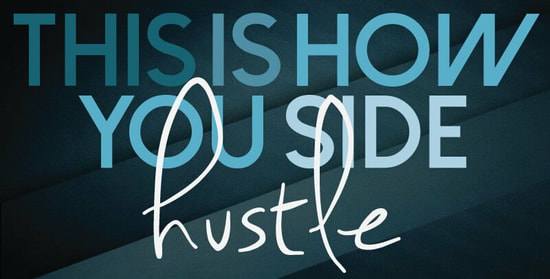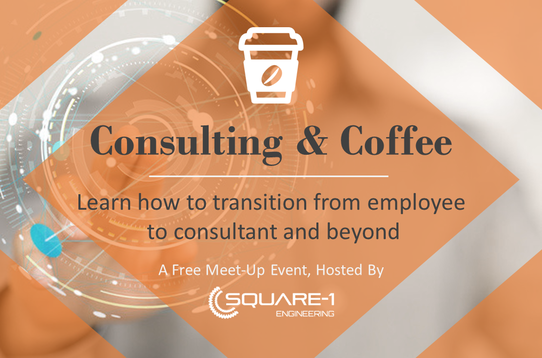|
The side hustle always sounds enticing. Enticing because it’s fun, give us an opportunity to make extra dough on the side while doing new and hopefully cool work. Sound familiar? I hear this all the time when talking with colleagues. “I’m going to start consulting. You can make some really good money on the side.” The idea of consulting sounds fun because in our heads it is. Making money on the side doing what we love, of course that’s fun, yet we’re overlooking an important aspect of the ‘side hustle’ which often we don’t figure out until it’s too late. Working outside of your 8-5 job is in fact a means to make more money. It can also be a means to do other work and expand your skills, but before you you jump in you’ll need to think about one thing: How am I going to make money doing this? It happens all the time. We come up with a great idea, get excited and off we go chasing our idea as quickly as possible to bring it to life. Along the way we’re thinking about all the fun aspects of our new idea or venture except the most important – how am I going to make money doing this? Most people get into consulting (the side hustle, freelancing, moonlighting, gigging – it’s all the same) because we have a particular skill set and someone takes interest in it. For example, if I’m an electrical engineer and I’m really good at PCB (printed circuit board) design I can easily do this work for other people or companies on the side, often times without breaching any of my current employer policies. We jump into the side hustle with an immediate project. It almost seems easy. The work is just coming to us and all we’ve got to do is uphold our end of the bargain and finish the task to get paid. Inevitably we begin making the rounds to our other connections, picking up more projects that keep us going for a while. If we’re really lucky, we get busier than we could have imagined and as a result we take the leap into consulting full-time, leaving behind our 8-5 behind. We’re elated, encouraged and empowered all at once. Until reality sets in – what do we do once we’ve exhausted all our networks and connections and there’s no more work? Panic sets in and suddenly consulting begins to lose its enticing ways. It’s not fun anymore, this is a real job with a lot more responsibility than the 8-5 I was trying to get away from. Whether you’re doing the side hustle or you’re full-time in consulting it can be really frustrating, and potentially scary, when all the projects dry up leaving you to scrounge up the next job to stay afloat, while keeping the green backs coming in. Here in lies the key lesson with consulting and why it’s important we always think about how we’re going to get paid as consultants: Consultants work themselves out of jobs – it’s a natural part of the process! “Do this job”, “fix this thing”, “get us up and running here” our clients tell us, then once the work is done so are you as their consultant. Therefore, one of the most crucial aspects of being a long-term successful consultant, which often times gets overlooked, is how important it is for you to continuously sell yourself. When we are constantly in sales mode our project opportunities flow in more consistently rather than a rollercoaster where the work is plentiful at times (the rollercoaster high of consulting) or work is scarce and you’re eating Top Ramen three times a day (the rollercoaster lower – really low). For this reason it’s paramount we always keep top of mind ‘How will I make money as a consultant?’. The answer is ‘sales’! If you’re considering stepping into consulting, freelance or full-time, make sure you consider how you think and feel about doing sales. How do you feel about selling yourself and your capabilities? Reaching out to people you don’t know to sell them on the fact ‘you’re the person for the job’. Going to networking events in the evenings. Pitching people in senior leadership positions. Overcoming objections, etc. This is the foundation for sales. Sales isn’t for the faint of heart. It’s a grind and it’s all about the numbers. The more you do it and the more consistent you are the better off you’ll be in the long run, with opportunities aplenty. This doesn’t mean we need to forgo getting into consulting. It may just mean we need to slow down our excitement and think more strategically about what we’re about to go into and how we’re going to whether the storm should things get slow for a period of time. The answers to those two questions will provide valuable insight as to whether or not consulting is the right career path for you. Key Take Away: Before you start consulting, regardless if you are freelancing for full-time consulting, you should spent time thinking about these two questions: 1.How am I going to make money doing this? 2.Can I sell myself and do so consistently? Action Item: If you’re on the fence about how you feel with your abilities and interest with sales, go do a test run. Go to a networking event and go alone. At this event your sole purpose is to sell yourself. Go prepared with an idea of the ideal person you want to meet – the customer you would do work for. Find those people and start off with your introduction, your elevator pitch. Follow this up with an explanation of your specialty and how you help solve people’s business problems. (if you need more direction here go read the cliff notes version of the book ‘Spin Selling’ by Neil Rackham) While you’re in these conversations at the networking event try getting wildly curious with your questions to better understand the challenges and work the person you’re speaking with has in front of them and how potentially you could be the solution to their problem, aka pain points. Smart sales is less about selling yourself and more about listening and discovering areas you can help people. Note – this takes time to master and won’t happen overnight however while you’re at the event testing out your sales skills you will at least get an idea for how you feel about your interactions and the actual activity of selling. From here you can digest whether this is something you want to do further. Lastly, be realistic. More often than not you aren’t going to land a sale or consulting project off the first discussion with someone. Yes, it does happen from time to time however the more realistic outcome is it will take you anywhere from 5-7 interactions with a person or business before you land an opportunity. Interested in earning additional income? Looking to leave your full-time job to go it on your own? Maybe you just want to take on exciting, new work outside of your 8-5 job!
Join the Square-1 Engineering team for our morning coffee meet-ups to discuss the business of technical consulting, how to become a consultant and do so successfully on your own. https://www.sqr1services.com/consulting-and-coffee.html
0 Comments
For the past 13 years I’ve worked exclusively supporting Orange County, CA ecosystem of growing gigs (aka consultants, freelancers, etc). It’s been a while ride to say the least with endless learning opportunities along the way!
During my time working with gigs and professionals alike I seem to find myself engaged in a variety of conversations having to do with professional guidance. I’m certainly no career counselor but have witnessed enough over the years to have noticed more than a few trends with the path and decision making an average career takes. One of the most consistent questions I get from people I’m interacting with is… “How can I become a consultant [gig]?” This question is interesting in of itself because the very statement overlooks a very important consideration: do we understand what the life of a full-time consultant is like? And just as important, can I keep my full-time job and do consulting (aka freelancing, moonlighting, etc) on the side? Lastly, why are you considering being a consultant in the first place? Before you start considering leaving your comfy desk job for the wild ride of becoming a career consultant spend time thinking about how you feel and perform with the following:
Key Take Away: Check yourself before you wreck yourself. (thanks Ice Cube for that insightful lyrical melody) Ice Cube was on to something here – before you jump into [consulting] spend time to learn about the life of a consultant and the realities that come with it. Action Item: Rather than leaving your day job, start your consulting experience by picking up a couple small jobs you can do on the side in the evenings or weekends. This will give you a chance to learn how to interact with clients, manage projects and your time. Do 3-4 projects then reassess those experiences, what you learned, how you performed and things to change for the future. Once you’ve done that you’ll have a better perspective of the life of a consultant and whether or not its right for you. About the AuthorTravis Smith is the founder and managing director of Square-1 Engineering, a medical device consulting firm, providing end to end engineering and compliance services. He successfully served the life sciences marketplace in SoCal for over 15 years and has been recognized as a ‘40 Under 40’ honoree by the Greater Irvine Chamber of Commerce as a top leader in Orange County, CA. Categories
All
Archives
July 2024
|
Visit Square-1's
|
|






 RSS Feed
RSS Feed


